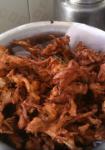
Part I: Prabhakaran's Eastern Challenger
The long-simmering differences between Prabhakaran and the eastern LTTE warlord Vinayagamoorthi Muralitharan, alias Colonel Karuna, came to the fore on March 3 when Karuna refused to send an additional 1,000 troops to the North as requested by Prabhakaran.
Karuna was at the time special commander, Batticaloa-Amparai.
It is believed that Prabhakaran had ordered the transfer to the North of the 1,200-strong Jayanthan Padaippirivu (Jayanthan Battalion), consisting exclusively of easterners, which had returned to its bases in the east after distinguishing itself in the Elephanta Pass battles of 1999 under Karuna's leadership to the north.
Since there was no operational requirement for this transfer unless Prabhakaran was planing to resume hostilities against the Sri Lankan army about which he had not consulted him, Karuna probably suspected this was possibly a prelude to his removal from the leadership of the east. He decided to pre-empt Prabhakaran by not only refusing to send the additional troops but by purging Prabhakaran loyalists posted in the east.
Another reason for Karuna's revolt was his anger over the operations of Pottu Amman, chief of the LTTE's intelligence wing, in the east without keeping him in the picture. Ever since elections to the Sri Lankan parliament were called on April 2, Karuna had been assuring the people of the east that the LTTE would ensure that there was no interference with the electoral process in the east.
He felt the intelligence wing's actions in carrying out the assassinations of a candidate and an election worker who did not enjoy the LTTE's blessings discredited him in the eyes of the people and the international community and called into question his ability to keep up his promise.
After deciding to defy Prabhakaran's directives, Karuna simultaneously informed the Norway-managed Sri Lanka Monitoring Mission that hereafter he and his eastern troops would act independently.
Immediately afterwards, the Monitoring Mission's chief, retired Major General Trond Furuhovde flew to Kilinochchi in a Sri Lanka air force helicopter for urgent discussions with Tamilselvan, head of the LTTE's political wing.
Kausalyan, political head of the Batticaloa-Amparai district in the east who was sacked along with two other Prabhakaran loyalists by Karuna, was supposed to get married a day before the Prabhakaran-Karuna rift became public.
On hearing of Karuna's revolt, Kausalyan postponed the wedding and fled to Kilinochi with his fiancee and their parents. The Sri Lankan army discovered the revolt when Varathan, Karuna's secretary, contacted army officers and requested them to prevent Kausalyan and his two colleagues, Ramesh and Pirabha from escaping to Kilinochi and hand them over to Karuna. Prabhakaran later replaced Karuna with Ramesh as the special commander, Batticaloa-Amparai, and Pirabha was named his deputy.
In an interview to the Daily Mirror of Colombo, Varathan said:
'A separate ceasefire agreement by the government with Karuna could ensure security in the Eastern Province. In the backdrop of continued killing of political activists in the East by the LTTE's intelligence wing headed by Pottu Amman, there was little choice left to ensure security.
We have banned any of their men from entering the East, but some men can remain. We can not rule out their involvement in these killings.'
Prabhakaran's decision to dismiss Karuna would have no 'impact' practically, he said. 'There will be no impact on our interests. It is out of their control.'
When asked about a possible threat to Karuna's life identical to what had happened to Mahattaya in 1994, he stressed that there was 'no similarity between the two situations.' Mahattaya, who was once known as Prabhakharan's deputy, was assassinated after he revolted against his leader. 'These are totally different issues. In Mahattaya's case, there was foreign involvement, there's nothing like that here,' Varathan said.
The continued alienation of the LTTE's eastern commanders by the Northern hierarchy, the continued attempts to fortify the North by using eastern cadres and eastern members having to face the brunt of the consequences of the actions of the intelligence wing of the north had all contributed towards Karuna's decision to split from the LTTE, he said.
'How do we answer the parents of these boys when the north asks us for additional cadres during a period of peace? Over 30 of the hierarchy in the organisation are of the North. They hold the posts of finance, police, intelligence and the political wing, leaving nothing for us despite our sacrifices to the cause.'
Before staging his revolt, Karuna wrote a letter to Prabhakaran complaining of discrimination against LTTE cadres from the east by the leadership and alleging ill-treatment of eastern cadres when they were posted in the north by the northern leadership.
He pointed out that 4,550 fighters from Batticaloa and Amparai had sacrificed their lives in the struggle for Tamil Eelam and 2,248 were serving in the north. Despite this, according to him, not a single cadre from these districts figured in a list of 30 divisional commanders recently appointed by Prabhakaran.
'It is very painful that when all the heads of Tamil Eelam divisions and administrative heads tour Kilinochchi town in luxury vehicles, members of the Jeyanthan regiment from Batticaloa and Amparai remain on full time duty at the checkpoint in Palai. How can this be reasonable?
'At this time of peace, all fighters like to be with their relatives in their home areas. It is my feeling that up to now they have rendered an invaluable service to the people of 'North Tamil Eelam,' sacrificing their lives. At this time I like to serve the people of 'South Tamil Eelam;' not only that, it is my final wish to fight for these people here itself and die at their feet. I do not like any other person interfering in these matters,' the letter said.
'We do not want to desert you. We look to you as our god. Sometimes this decision of ours can anger you. The reason is that I do not like to commit the historical mistake of not disclosing to you the hopes of the people and the fighters here and not respecting their feelings. If you believe in the people here and the fighters here allow us to work independently under your leadership.'
In an interview to Shimalee Senanayaka, an Associated Press reporter who was the first to break news of the revolt on March 3, Karuna was quoted as saying that he had sounded the government about negotiating a separate cease-fire in the Eastern Province.
'We think it's very important to have a separate defense pact with the security forces. There is no question of conciliation, everything is beyond reconciliation. In future we will have a full self-administration (in the east). We'll receive no more command from the Wanni administration or Prabhakaran,' he said.
His men would not begin fighting and would respect the current cease-fire until a new agreement was signed. Explaining the reasons for the split, he said he disagreed with Prabhakaran's request to recruit more fighters and deploy them in the north. 'In the past it did not seem a big issue. Now it's peace time, people and parents are trying to analyze why they have to give soldiers during peace time.'
He also said the northern cadres were favoured for positions in the group's administrative wing.'We have already paid a heavy price to protect Wanni, its people, particularly the leadership. I sincerely hope that unlike the Wanni leadership, those people (in the north) will be grateful for our sacrifices.'
Later, in a interview to the BBC's Sinhalese service, Shimalee Senanayaka said:
'Colonel Karuna warned that he and his troops were ready to retaliate against Prabhakaran and his loyalists if he (Karuna) or his troops were ever harmed in any way. Karuna accused Prabhakaran of using the troops from the east for his personal ends. He said he refused to send 1,000 more troops to Wanni as requested by Prabhakaran because the eastern troops had always been used at the front lines while the others led a luxurious life enjoying all comforts in the north. He alleged that the lives of 2,300 eastern troops had already been sacrificed for Prabhakaran's protection.'
He said while Pottu Amman was busy carrying out political assassinations in the east without his knowledge, he had to answer to the Norway-led Sri Lanka Monitoring Mission and the international community about the assassinations. He was referring to the assassinations of a candidate in a Batticaloa hospital and an election worker in Valachchenai during the last few days.
He went on to claim that none of the economic benefits of the current ceasefire had benefitted the Eastern Province. He accused the LTTE leadership of buying luxury vehicles for their use out of international funds and of building a new town at Kilinochi out of these funds while totally neglecting Batticaloa. The Norwegian and the Swiss money that reached Kilinochchi was never shared with the Eastern Province.
He had pointed out many of these issues in many letters written to Prabhakaran but he never received any reply, he said.
Karuna also pointed out that he had led many hard won battles and was, therefore, not afraid of his personal safety. If he or his troops were harmed, the LTTE leadership would be held responsible by the international community and he would violently retaliate.
On March 5, Cyril Herath, the Sri Lankan defence secretary, rejected a request from Karuna for a defence pact with the security forces and a fresh ceasefire accord. 'We cannot agree to that,' Herath said. 'When there is one ceasefire agreement signed between the prime minister and Prabhakaran, how can we have another with a member of one of the parties?'
He revealed that Karuna had made the request through military commanders, but the military chiefs were against entering into negotiations with a faction of the LTTE. 'Both sides have indicated they will abide by the ceasefire that is currently in place,' Herath said. 'In this situation we don't want to do anything. But we hope they will not fight each other.'
There was no comment from the government on reports that Prabhakaran had sought its clearance for sending a team of 20 LTTE officials from Kilinochi to the Eastern Province through government-controlled areas, apparently to replace Karuna and his supporters in the eastern leadership.
Part III: 'More ruthless than Prabhakaran'





